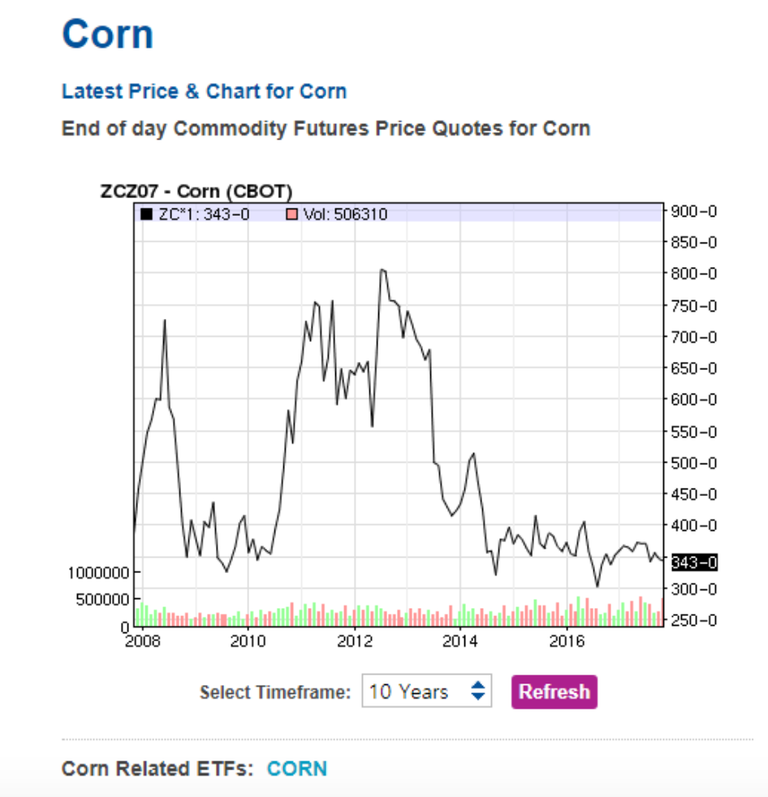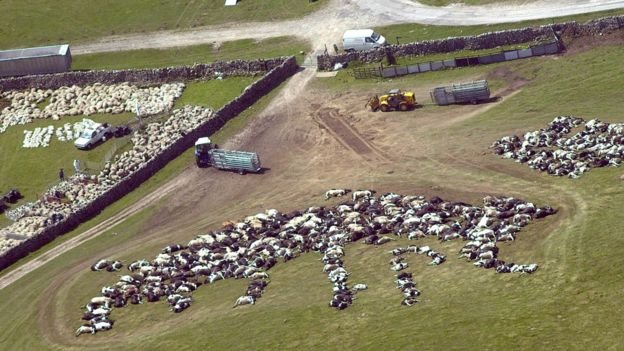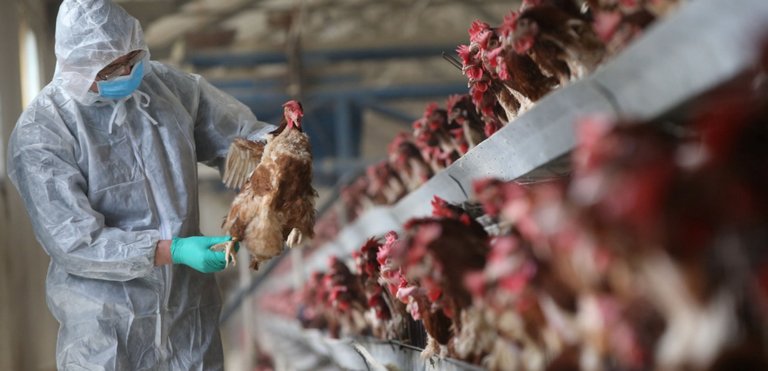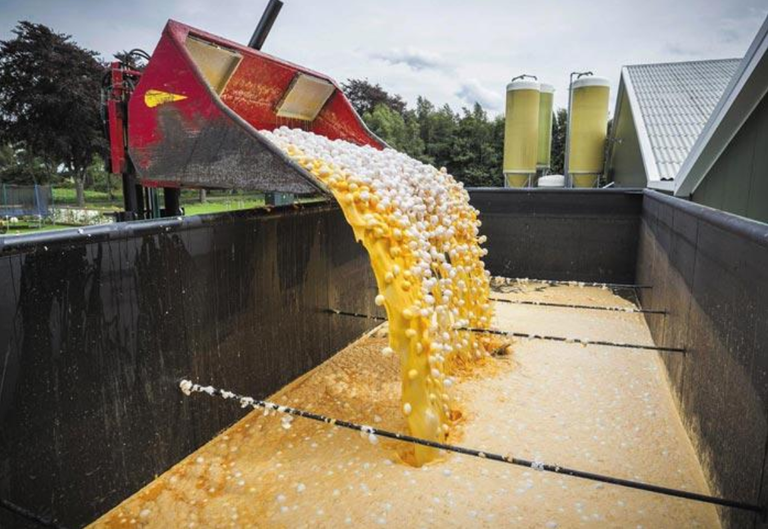Whether you are a strict vegetarian or not, in order to produce one pound of meat, about 25 pounds of corn and soybeans are needed. With statistical analysis, one can see that livestock farmers will not be able to control the price of corn and other feeding costs.
Fortunately, both gasoline and biodiesel oil prices have fallen due to the sales revolution in the US, and corn prices have sharply fallen compared to 2013. But this is not likely to continue, because in terms of corn production farms, it is more profitable to sell to biodiesel producers than to sell them for livestock feeds despite its mandatory needs. In the end, an increase in livestock feed prices will lead to an increase in meat prices, which makes livestock farmers unable to reduce their predicted yields.

Secondly, the cases of flu that occur at large-scale collective facilities for the rearing of cows, pigs, chickens and other livestock cannot be avoided. Therefore, the facilities must use of foot-and-mouth disease and bird flu vaccines and various pesticides, and once the virus spreads, all of the livestock must be slaughtered. This is very sad.

(Thousands of dead cattle and sheep on Malham Moor, North Yorkshire, Feb, 2016, England)
Although governments are taking steps to improve the dense breeding environment to prevent the spreading of viruses, the same foot-and-mouth diseases are spreading all over the world every year and transmission of bird flu from migratory birds has been inevitable. In addition, such policy considerations do not eliminate consumer distrust that comes from them not knowing what vaccines and pesticides are used in the farms. Of course, there are consumers who seek such information out, but eggs are not sold with the used pesticides printed on the label.

In August 2017, a banned insecticide, fipronil, was found in the eggs from Belgium and Netherlands, causing an abrupt halt to all egg production. Netherlands's Southern Agriculture and Horticulture Organization (ZLTO) on 15 August 2017 reported that the farm damage caused by fipronil pesticides totaled at least 150 million euros (about USD $178 million and KRW ₩200 billion). CBL, the Dutch Food Service Retailers Association, also predicted–at the time–that over 4,000 retail outlets nationwide would be affected and would lose tens of millions of euros. The Netherlands has since closed 180 farms and has slaughtered 1 million laying hens. For these and related reasons, the production of meat and animal-based proteins planned at the beginning of the year was not met due to non-price factors.

The system is the same in Korea; 99% of the distributed chicken and eggs are produced within animal factory system. Five to six chickens live in a battery cage of 50 cm3 in size, which is the same as a chicken living off two-thirds of a sheet of A4 paper. Normal chickens raised in an ordinary yard remove ticks in natural manner by having sand showers, but the caged chickens cannot. In fact, they actually transfer ticks amongst themselves. The higher the density of number of chickens in breeding higher the density of ticks. Anyone can expect that such viral problems will be repeated unless the overcrowded and unhygienic “animal factories” are terminated.
With the increased exposure on the current system and its diseases, flus and chemical threats, there is a never before seen rise of individual and corporate support in changing the current system and animal-based protein diet. However, it is not easy to shake off the temptation of animal proteins that have been around for thousands of years.
If and only when we produce fake meat which is so similar to real meat in terms of texture, aroma and even the sound of grilled meat, then we would be able to start changing the consumer buying process. At this point, ATFS would be engaging in competition against other plant-based meat producers.
This is the reason why we are pursuing a research and development program to provide the world’s best Asian cuisine-based plant protein product mix.
Sources:
- http://www.bbc.com/news/magazine-35581830
- https://www.neste.com/en/corporate-info/investors/market-data/biodiesel-prices-sme-fame
- https://www.pakistankakhudahafiz.com/bird-flu-pours-new-misery-dutch-poultry-farmers/
- http://www.nasdaq.com/markets/corn.aspx

💻 Website: https://atfslab.io
🐦 Twitter: https://twitter.com/AtfsLab
📘 Facebook: https://www.facebook.com/atfslab
📱 Telegram: https://t.me/ATFS_ICO
great analysis. good thing I reduce my meat last couple of years.
Good on you! We are not against meat in general, but for the movement to change the paradigm of how meat is being produced. Share the word to make a change!
Cultured meat (in vitro meat) will be grown on industrial scale in cell culture rather than in animals.
The following are a few of the many reasons why cultured meat is better than animal agriculture:
-Lower cost.
-Environmental impact would be lower.
-Lower infectious disease transmission to humans.
-Animal cruelty would be drastically reduced because there is no nervous system that feels pain.
-Human health might improve due to greater control over diet.
-Reduced greenhouse gases and less contribution to Global Warming.
-Other animal products such as leather are also possible.
-Individualized custom human cell cultures can also produce more effective insulin, etc.
The list goes on and on, right?
You were lucky! Your post was selected for an upvote!

Read about that initiative
Resteemed by @resteembot! Good Luck!
The resteem was payed by @greetbot
Curious?
The @resteembot's introduction post
Get more from @resteembot with the #resteembotsentme initiative
Check out the great posts I already resteemed.